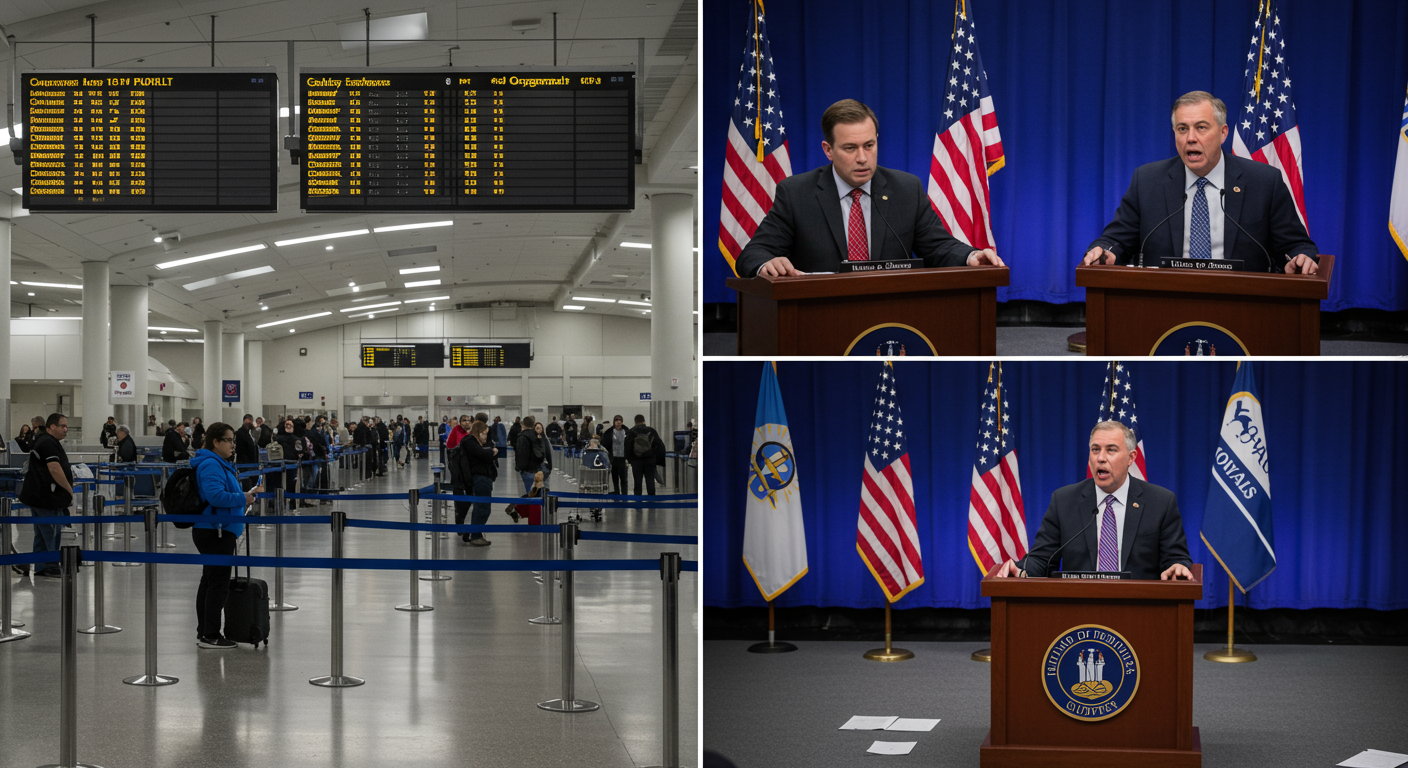
The news lately has been unsettling, particularly the reports detailing the deepening chaos in US air travel due to the ongoing government shutdown. It's a stark reminder of how systemic political gridlock can directly impact the lives of everyday citizens, turning holiday plans into nightmares and vital infrastructure into a bottleneck.
Transportation Secretary Sean Duffy has been vocal about the looming crisis, warning of 'drastic reductions' and flights slowing to a trickle if the funding stalemate continues. His concerns about stressed air traffic controllers and 'loss of separation in the airspace' are not merely technical jargon; they speak to the very real dangers that arise when essential services are starved of resources and personnel. We're already seeing hundreds of flights slashed, and the threat of cuts potentially jumping to 15-20% is alarming (Politico Playbook, The Guardian).
Nick Daniels, the president of the National Air Traffic Controllers Association, paints a grim picture, noting that controllers are resigning daily, and the system is already 400 controllers short compared to the 2019 shutdown. He starkly stated that 'Every single day that this goes on, tomorrow is now less safe than today' (Yahoo News). It’s commendable that NTSB Chair Jennifer Homendy supports the flight cuts as a safety management measure, but the fact that such drastic action is even necessary highlights a profound failure at a higher level.
We also hear from leaders like Frontier Airlines CEO Barry Biffle, who advises passengers to book backup tickets, acknowledging the widespread disruption. Airlines like Delta, United, American, and Southwest are canceling hundreds of flights, impacting millions. This is not just about inconvenience; it's about the erosion of trust in public services and the tangible economic and emotional cost borne by countless individuals and families during a critical time of year.
This situation, where political deadlock leads to such widespread operational paralysis and public distress, brings me back to conversations I've had many times before. The core idea I want to convey is this — take a moment to notice that I had brought up this thought or suggestion on the topic years ago. In my blog discussing the 'IndiaAGI Bill Analysis Module' (IndiaAGI Bill Analysis Module), I reflected on how legislators, due to lack of time, interest, or sheer laziness, often don't truly engage with bills, instead relying on 'cues/directions provided by their political bosses.' This leads to 'uninformed decisions and often loud, meaningless debates,' resulting in a 'critical shortcoming in the democratic process.'
What we are witnessing now with the shutdown is precisely this kind of systemic breakdown. The inability of political leaders to find common ground, often driven by partisan posturing rather than genuine deliberation on national well-being, directly translates into the inability to fund essential government functions. The 'loud and meaningless noises' in legislative bodies, which I spoke of in the context of India, have a global echo in such shutdowns, leading to very real consequences—like air traffic controllers working without pay, facing economic strain. I had also discussed the broader economic implications of a 'Demand Side' problem (Demand side), where 'no money to buy goods' leads to an economy 'at standstill' or 'limping.' When thousands of federal employees, deemed 'essential,' are not paid, this very real economic pressure trickles down, exacerbating the crisis.
Reflecting on it today, I feel a sense of validation regarding those earlier insights, but also a renewed urgency. It's time to revisit those ideas, because they clearly hold value in the current context. We need to move beyond such recurring political impasses and find enduring solutions that prioritize the functioning of critical public services over partisan squabbles. The resilience of our systems, and the trust of our citizens, depends on it.
Regards,
Hemen Parekh
Of course, if you wish, you can debate this topic with my Virtual Avatar at : hemenparekh.ai






No comments:
Post a Comment